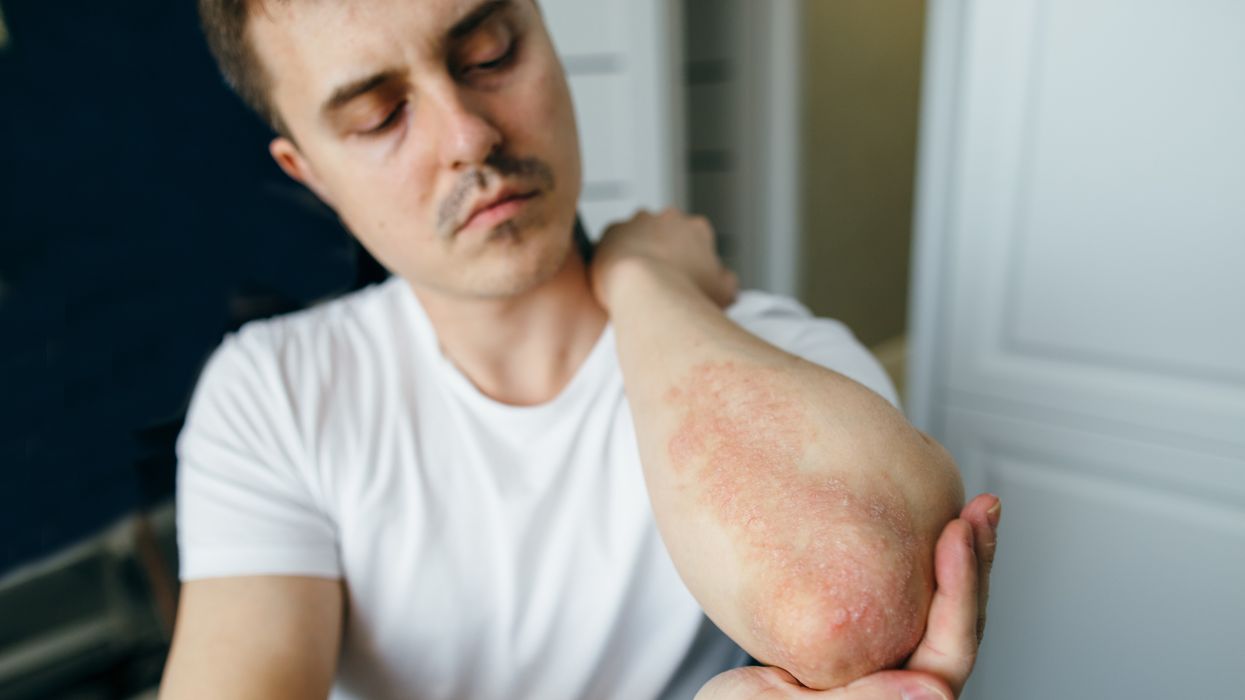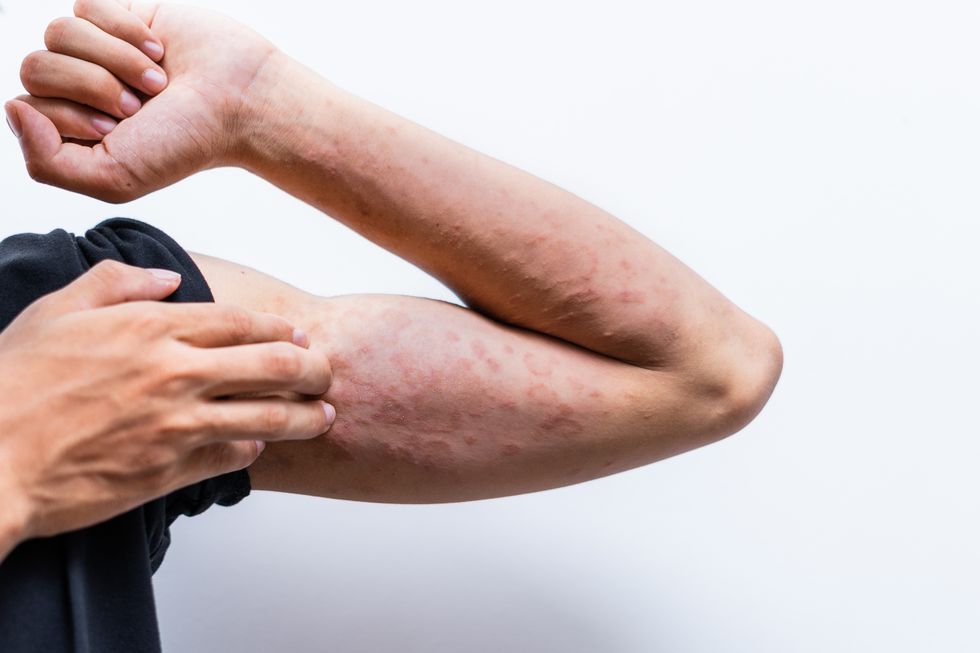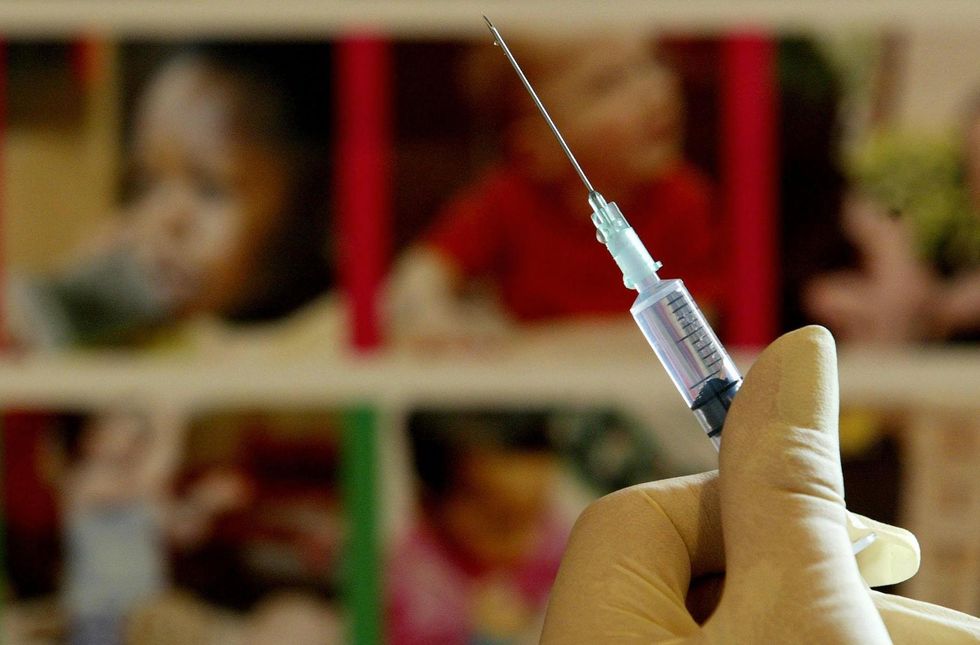Measles outbreak: Adults warned of catching 'dangerous' and contagious illness as risks are more severe in older people

Cases of measles have spiked in the UK and Europe
|GETTY

Measles cases have soared across the UK with some children forced to isolate. However, it's not just children who should be wary of the spike in cases, doctors exclusively told GB News
Don't Miss
Most Read
Latest
A fresh warning has been shared as cases of measles rise in the UK and across Europe at an "alarming rate".
Doctors have warned adults may be more at risk than they realise of the contagious illness.
The number of people contracting measles has increased by 200 per cent in some parts of the UK.
Measles is often thought of as a children's disease as adults are more likely to have been vaccinated or be immune to the condition.
However, anyone who has not had the MMR vaccine could still catch the illness and side effects can be worse in adults, doctors exclusively told GB News.

Measles can cause symptoms such as rashes
|GETTY
Around one in five adults who catch measles go to hospital, with one in 15 developing severe complications.
Symptoms include fits, brain damage, deafness and swelling of the brain.
Speaking exclusively to GB News, Dr Johannes Uys - a doctor at Broadgate GP with more than 20 years experience - shared a warning for those who have missed the vaccination.
Dr Uys said: "People born before the measles vaccine was widely used can be at risk for contracting measles if they did not develop natural immunity when they were young.
"Contracting measles as a child in the pre-vaccine era typically provided immunity for most people, but some may have had mild cases that did not give full or long-lasting immunity.
"Waning immunity can also be a factor, with some studies showing that measles antibody levels can decrease with time even after natural infection. So even those infected in childhood may have lost some protection decades later in adulthood."
The first vaccine was introduced in 1968 and offered to children.
The single-dose MMR was rolled out in 1988 and the two-dose was offered in 1996. It was also offered to young people at this time.
Those who were born before this time may have missed out on the jab, potentially putting them at risk of getting ill.
The NHS states those born before the time are likely to have contracted the illness and have natural immunity if they did not get the jab.
However, the effects of this may have worn off and symptoms can be worse in later life, the doctor claimed.
Dr Uys added: "The symptoms and risks of measles can potentially be more dangerous in unvaccinated adults compared to children.
"Adults can experience more severe symptoms than children who get measles and complications like pneumonia and encephalitis are more common, likely due to adults' mature immune systems causing more inflammation."
Symptoms can be more severe in adults and exacerbate among older people.
The doctor continued: "As people age, measles can exacerbate other conditions like diabetes, heart disease or immune compromising conditions - increasing the risks of severe complications."
Dr Vijay Nayar from Healthium Clinics, who has nearly 35 years experience as a GP, agreed some adults may have missed out on the effective vaccine.
He said: "In terms of adults, generally speaking, if you were born before 1970, the chances are you would have got mumps or measles or rubella separately. "But those born after that are more likely to not be immune.
"The measles campaign was introduced in 1968 but take up originally was actually not that high. Then the MMR came in.
"We had a dip in the 1990s and the early 2000s, because of the false link with autism. That caused this vaccine hesitancy so that cohort of adults who are in their 20s may have missed out as well.
"So there will be some groups that haven't had immunity to measles and therefore will be prone."
However, the doctor added it is "more children" who should be concerned about getting ill.
Pregnant women can experience some of the worst side effects.
Dr Nayar continued: "We do worry about pregnant ladies as well. If you talk about adults, there's a risk during pregnancy to the baby if you aren't vaccinated."
Women cannot get the vaccine while pregnant so anyone planning a pregnancy so should make sure to get the vaccine at least one month before.
Dr Uys agreed there are extreme risks for pregnant women who catch the illness.
He continued: "Pregnant women who get measles are at higher risk for premature labour, miscarriage and low-birth-weight infants."
LATEST DEVELOPMENTS

The MMR vaccine is offered to children
|PA
As measles is generally less common in adults than children, symptoms can be mistaken for other illnesses, GP at The London General Practice Dr Stuart Sanders told GB News.
He explained: "Symptoms in adults are similar to those in children but the diagnosis can be missed because it is such an unusual illness in adults. Of course adults should be concerned about measles, particularly if they have other illnesses such as chronic respiratory diseases or are immune-deficient."
However, he said older people are much less likely to catch this.
Dr Sanders continued: "The risk is low because adults will probably have had measles in childhood, therefore having some immunity."
The best prevention for anyone is to get the measles vaccine, the doctors added.
Dr Nayar said those who are unsure whether they have had this can check their medical records or receive a dose regardless, as there is no harm in having this twice.
An NHS spokesperson stated: "Adults born in the UK before 1970 are likely to have had measles, mumps and rubella as a child or to have had single measles or rubella vaccines which were used before MMR was introduced in 1988.
"If you are unsure whether or not you have had these infections or the vaccines to protect against them, you can ask your GP to vaccinate you. You will need two doses, one month apart.
"Even if you have had the vaccines before, you will not come to any harm from having extra doses as your immune system will recognise and quickly destroy the vaccine viruses."










